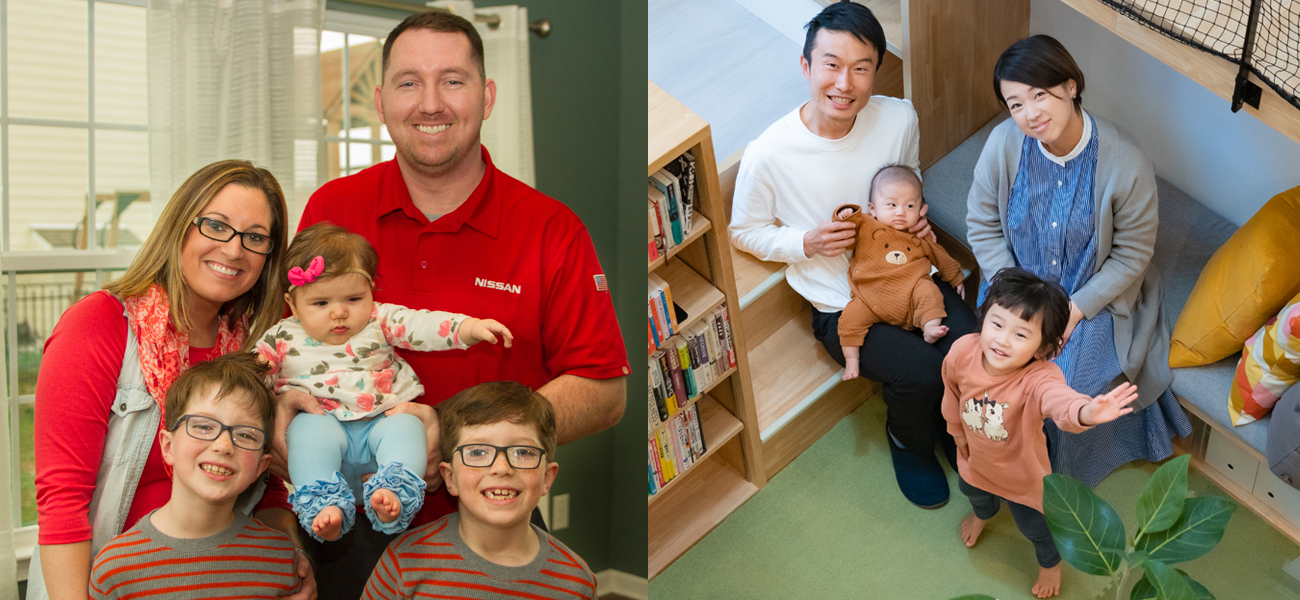If life is a journey, your workplace can have a big impact on how smooth the road is. Nissan recognizes that each of its 130,000-plus global employees have unique needs, whether they’re young professionals relocating to a new city or first-time parents adjusting to family life. The constant is Nissan’s commitment to providing support. To see this in action, let’s look at the Hinson and Yamada families.
Michael and Megan Hinson live in Tennessee, where Michael analyzes parts logistics at Nissan’s Smyrna Assembly Plant and Megan teaches early childhood education. Yoshiho and Ribeka Yamada work in Japan for Nissan, where Yoshiho is an electrified powertrain engineer and Ribeka is a human resources specialist. Both families benefit from a company culture in which employees’ work-life balance comes first so they are engaged, healthy and happy.
Adoption support helps the Hinsons welcome a new family member
Michael, a Tennessee native, joined Nissan in 2011 as a quality-control auditor in Smyrna. After he married Megan, their family grew to four with the birth of twin boys. Still, Michael and Megan felt their home wouldn’t be complete without a daughter.
After several difficult pregnancies, Michael and Megan discussed adoption. But plans ran aground once the couple found private-agency fees could run into the tens of thousands of dollars. Then Michael heard from one of his plant managers about the Nissan Adoption Assistance Plan, which offers reimbursements up to $5,000 toward adoption expenses.
“The Nissan team was so supportive during the adoption process, and the cost assistance benefit was truly a blessing for us in terms of support in funding the adoption cost,” Michael says.

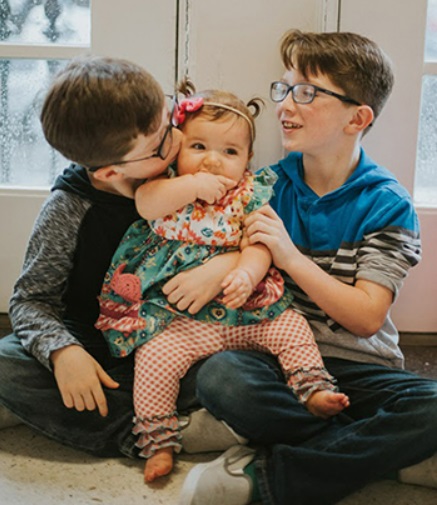
With that help, the Hinsons began a journey of faith and persistence that culminated in six-month-old Gracelyn Hope officially joining the family in March 2017.
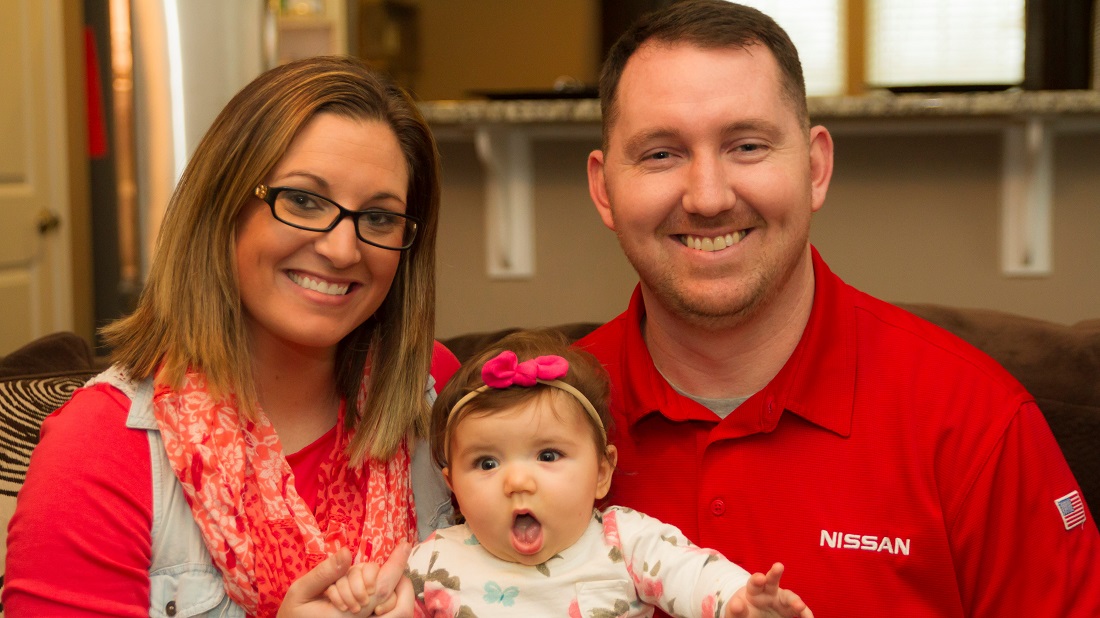
Michael says, “Without the company’s support, bringing Gracelyn home may not have been possible. Our slogan was ‘Bringing Home a Hinson’ during our fundraising process, and Nissan definitely helped us bring home Gracelyn Hope Hinson.”
Childcare-leave policy supports the Yamada family
Yoshiho and Ribeka used Nissan’s childcare-leave policy when they began a family in 2019. They alternated taking leave so one of them would always be home during their child’s first year. The arrangement felt natural for the couple, who split chores and other household tasks as evenly as possible.
Still, male paternity leave is seldom taken at Japanese companies — only about 14 percent of employees use the benefit — so Yoshiho initially felt apprehensive. At Nissan it’s more than 60 percent (2021), but not many take an extended hiatus like he planned to.
“As a new father, I was very anxious about taking childcare leave,” Yoshiho says. “I hadn’t heard of anyone at my workplace taking a long break and wasn’t sure how my boss and colleagues would react to my decision. But my boss was very understanding and assigned me appropriate duties. I was able to take childcare leave without feeling uneasy or guilty. For that I am truly grateful.”
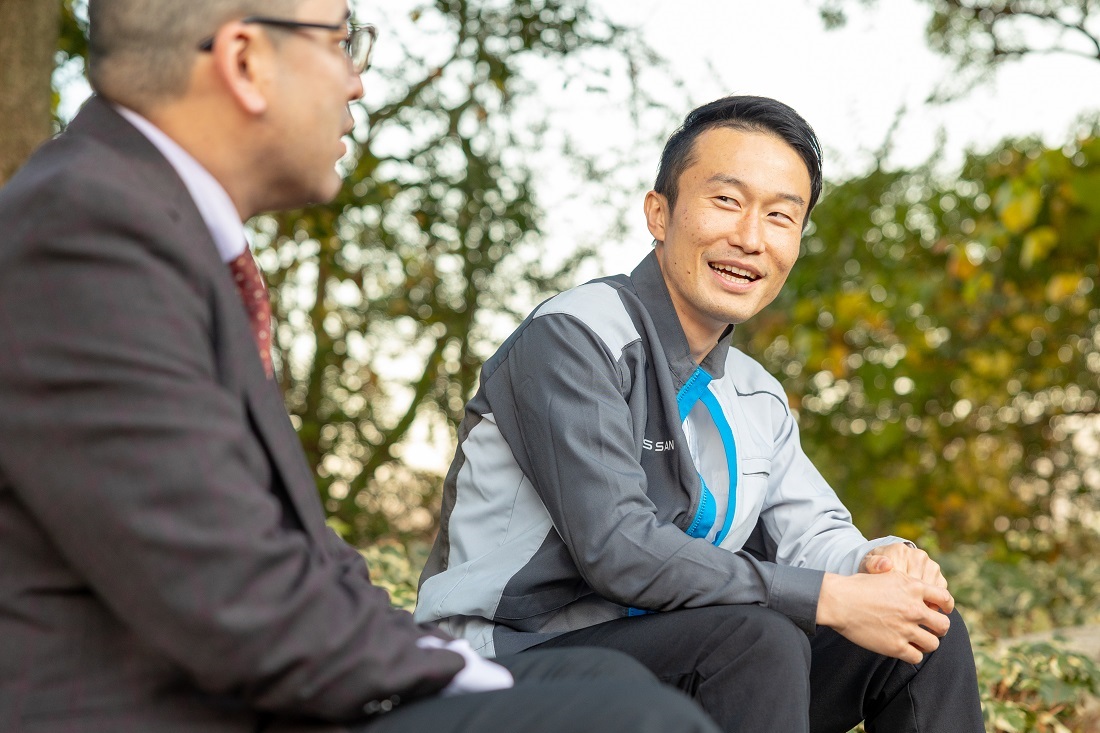
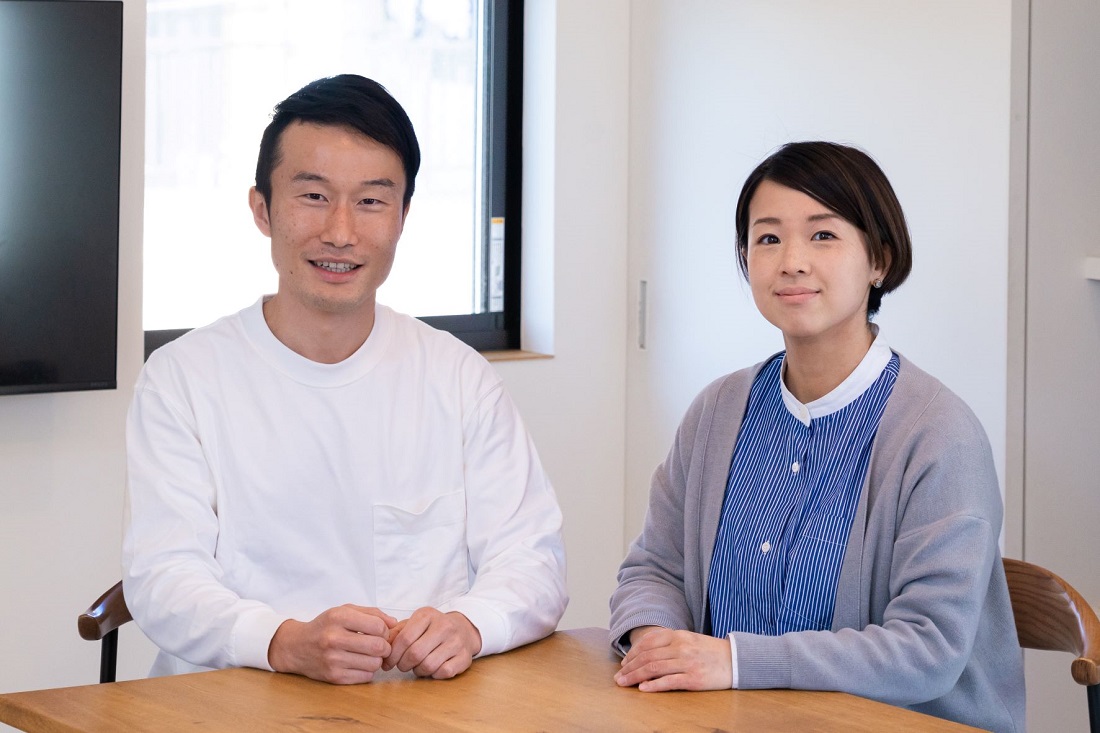
Ribeka believes it’s critical to shift attitudes about childcare when it comes to gender.
“I think it is important to convey the idea that child-rearing can be done by a couple altogether,” she says. “If we don't have a welcoming atmosphere for men involved in childcare, it will discourage them. So it is also essential for couples to share ideas on childcare and for women to encourage their partners to participate.”
In August the Yamadas had a second child. When Ribeka returns to work in a few months, Yoshiho will begin paternity leave. He says his mindset toward work has changed and his views have broadened.
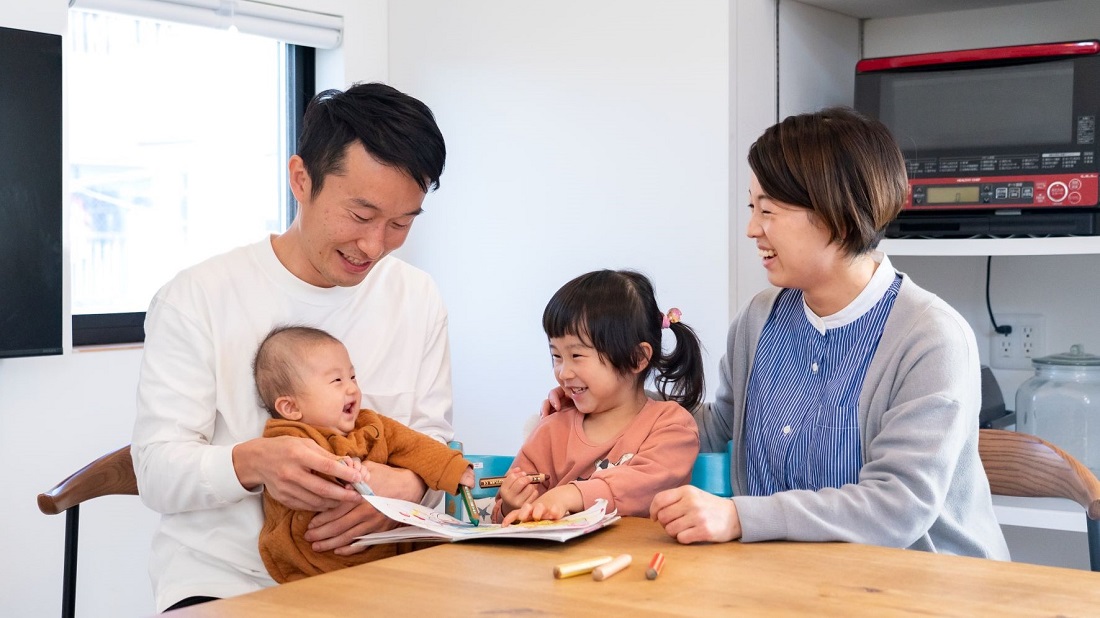
“The goal of the business is not only to achieve results, but also to make all stakeholders, including employees, happy,” Yoshiho says. He adds that he deeply appreciates the support of his colleagues who are making it possible for Nissan employees like Ribeka and him to have more fulfilling professional and private lives.
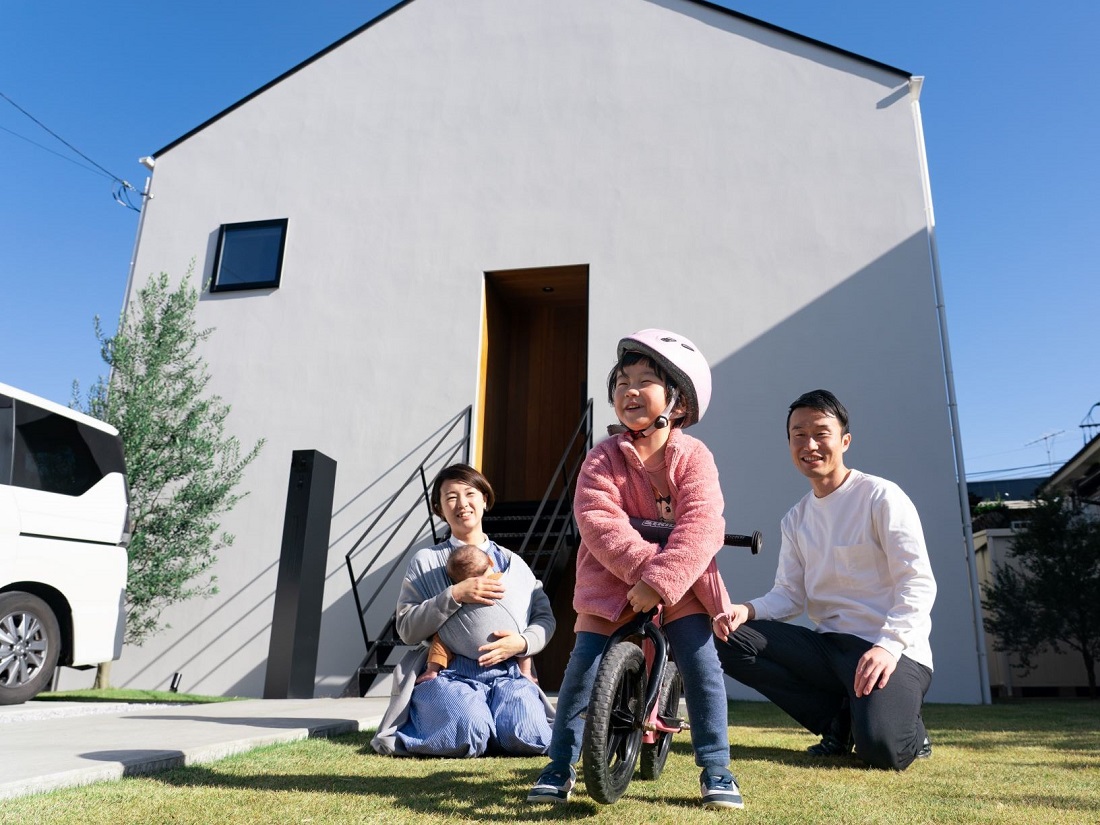
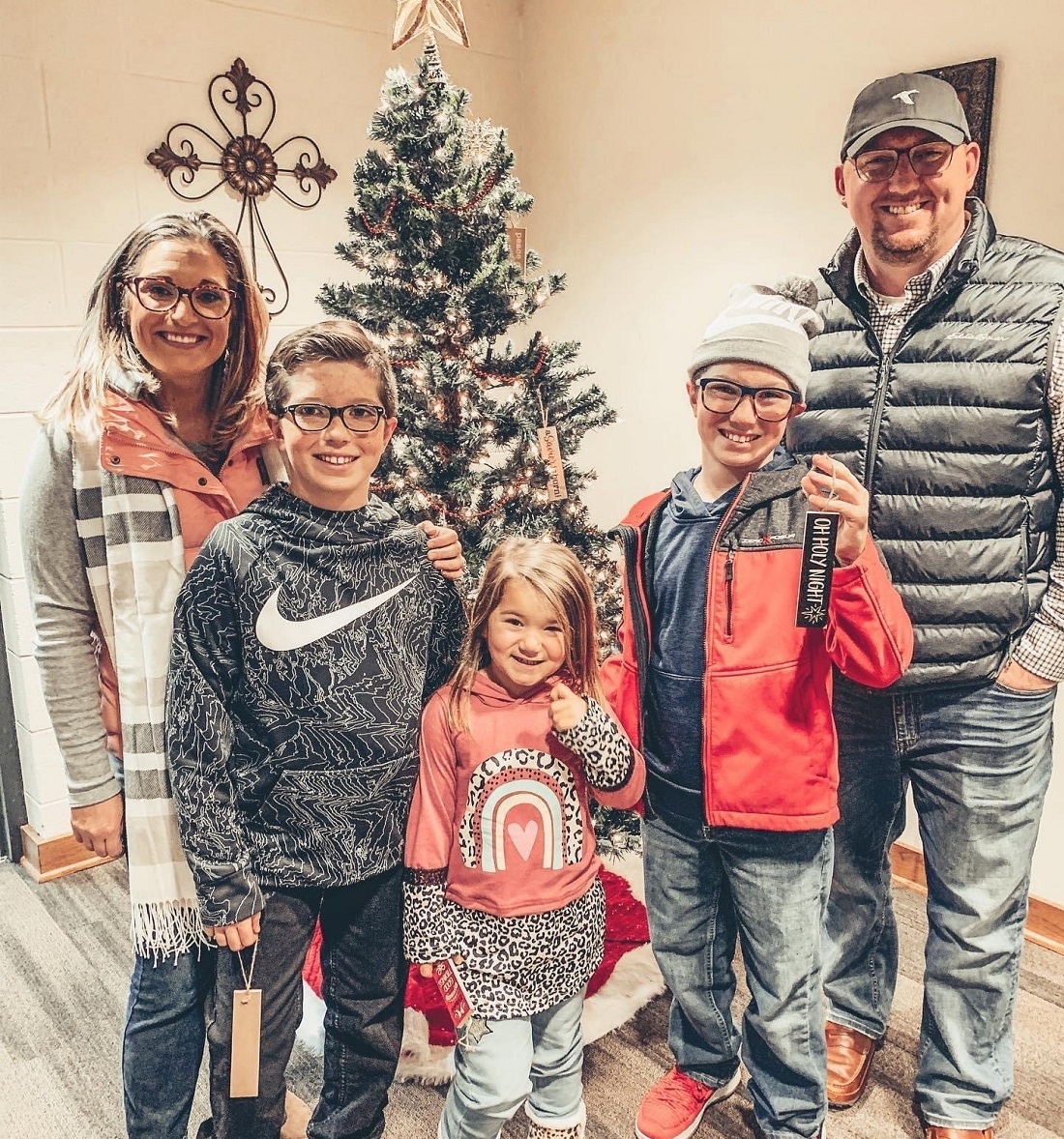
A deep sense of happiness
At the Yamada home, Yoshiho’s daughter — now four — is a fan of Nissan cars.
“That made me happy,” Yoshiho says with a smile. “Now we have more conversations as a family about work. I am busy with my job and childcare, but I feel very happy every day.”
That same happiness is present at the Hinson home. More than five years after adopting Gracelyn Hope, the family is still beaming.
“Gracelyn Hope is now six and full of personality,” Michael says. “She enjoys church, family time, school, gymnastics, basketball and softball. She loves being the baby of the family, and usually gets her way. She’s pretty spoiled by her older twin brothers and us.”
Respect for people’s lives
Nissan has developed a variety of employee-support programs because it values a diverse body of engaged and healthy employees. This goes back to its principles of diversity, equity and inclusion (DEI). Its family-support programs aren’t limited to what the Hinson and Yamada families have used; they also include in-house childcare centers, family-support holidays and more.


